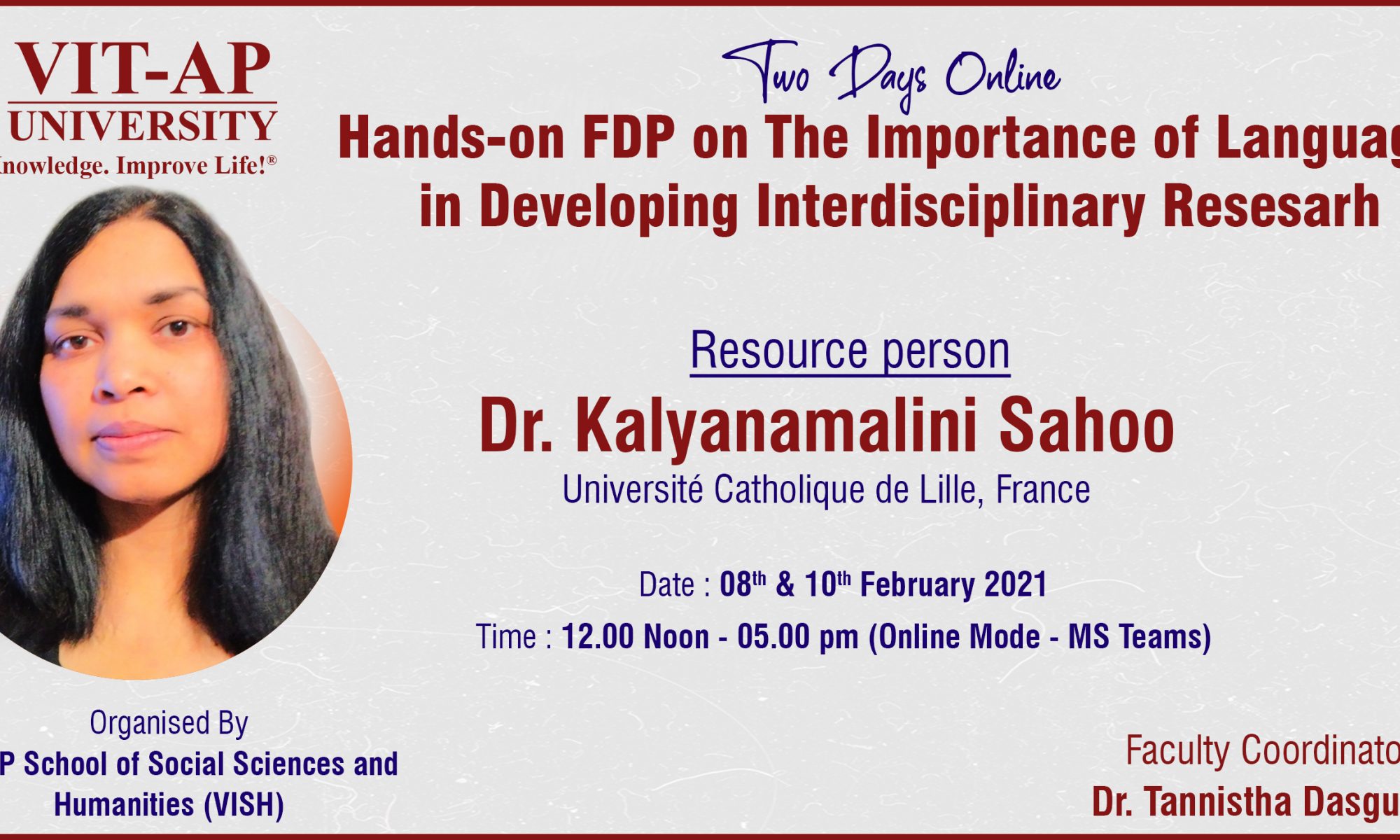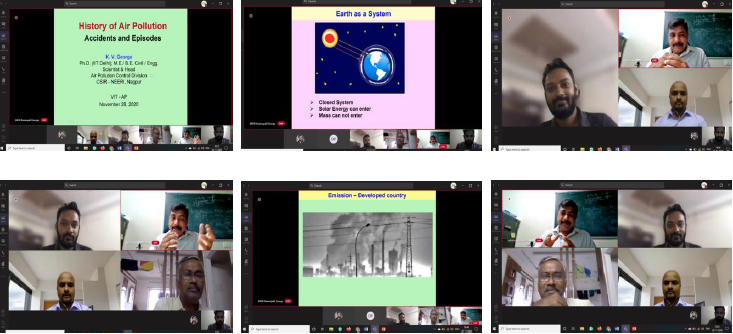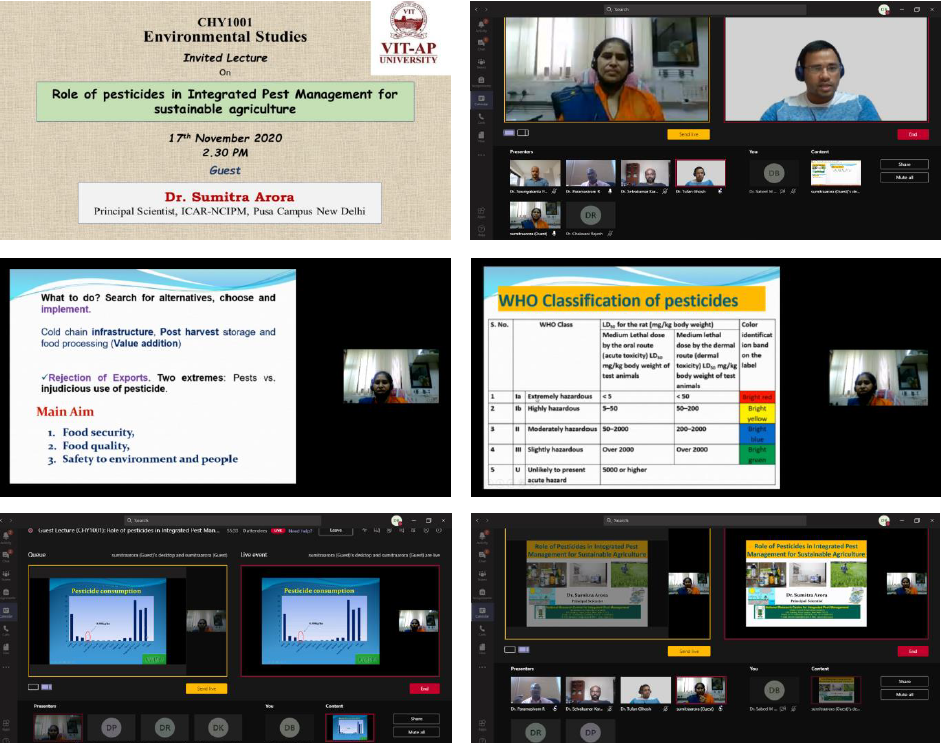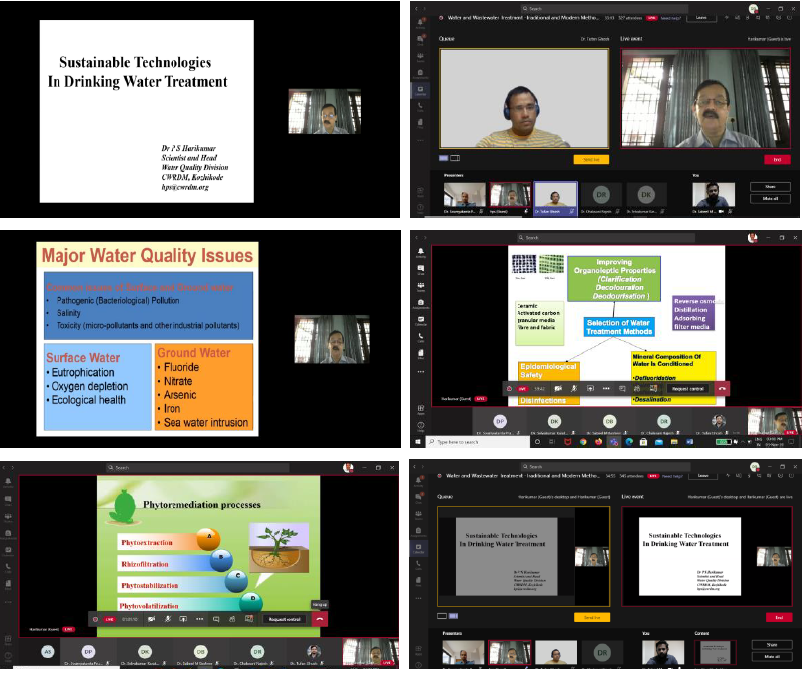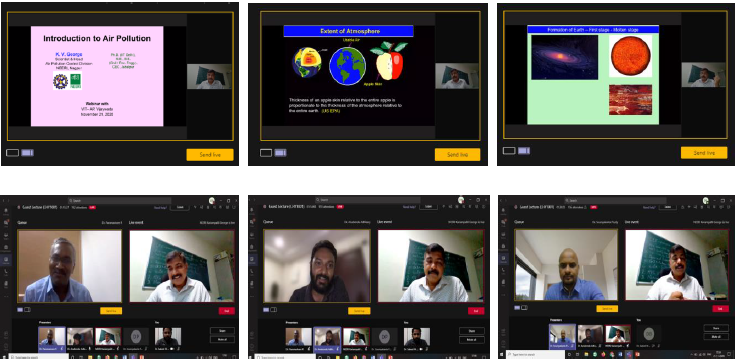CONSUMERISM AND ENVIRONMENT
The CHY1001 ‘Environmental Studies’ course is designed as a series of invited guest lectures along with project work. These lectures are focused on growing students’ awareness to the environment, understanding the fundamentals of our ecosystem, and ultimately towards finding the solutions of current environmental issues. Our twelfth invited online lecture for the Fall 2020-21 semester was on ‘Consumerism and Environment’, held with MS-Teams live event, where approximately 500 students participated.
The guest speaker, Dr. Gopinath, explained how the population growth and consumerism behavior affects the ecosystems and global environmental degradations. He discussed this with comparing before and current situations. He also deliberated the causes of consumerism, and pros and cons of consumerism to the human life. Dr. Gopinath further enriched the understandings by explaining the answers for the doubts and questions raised by the enthusiastically attended students.
Dr. Sabeel M Basheer, Assistant Professor of Chemistry coordinated the online lecture along with all other chemistry faculty members. Dr. Soumyakanta Prusty, Assistant Professor, Department of Chemistry welcomed the gathering and introduced the guest to the audience. Dr. Areti Sivaiah, Assistant Professor, Department of Chemistry delivered the vote of thanks and the online webinar lecture was concluded.
AGRICULTURAL POLLUTION: SOURCES AND SOLUTIONS
The CHY1001 ‘Environmental Studies’ course is designed as a series of invited guest lectures along with project work. These lectures are focused on growing students’ awareness to the environment, understanding the fundamentals of our ecosystem, and ultimately towards finding the solutions of current environmental issues. Our tenth invited online lecture for the Fall 2020-21 semester was on ‘Agricultural pollution: Sources and solutions’, held with MS-Teams live event, where approximately 400 students participated.
The guest speaker, Dr. Saravanan, discussed how the intensive agricultural practices and agro-systems create the pollutions, and its affect on environment. He explained the importance of organic farming in the modern era. Dr Saravanan further enriched the understandings by explaining the answers for the doubts and questions raised by the enthusiastically attended students.
Dr. Sabeel M Basheer, Assistant Professor, Department of Chemistry coordinated the online lecture along with all other chemistry faculty members. Dr. Areti Sivaiah, Assistant Professor, Department of Chemistry invited the gathering, and Dr. Selvakumar Karuthapandi, Assistant Professor, Department of Chemistry delivered the vote of thanks and the online webinar lecture was concluded.
HISTORY OF AIR POLLUTION: EVENTS AND EPISODES
The CHY1001 ‘Environmental Studies’ course is designed as a series of invited guest lectures along with project work. These lectures are focused on growing students’ awareness to the environment, understanding the fundamentals of our ecosystem, and ultimately towards finding the solutions of current environmental issues. Our seventh invited online lecture for the Fall 2020-21 semester was on ‘History of Air Pollution: Events and Episodes’, held with MS-Teams live event, where approximately 400 students participated.
The guest speaker, Dr. K. V. George, started his lecture explaining why our mother earth is considered as a closed system, and the importance of protecting its elements such as the atmosphere. He described the gradual exploitation of resources during the development of human civilization. Focusing on coal usage and other recourses, he explained how these exploitations are directly connected to the pollution of atmosphere. Air pollution episodes such as London Fog, Smog-Los Angeles have been reviewed. Examples of accidents such as Bhopal gas leak and Visakhapatnam styrene gas leak, and petroleum/LPG based air pollution such as Delhi smog were discussed. After the lecture, several questions and doubts have been asked by students, and Dr. George cleared them up in an extremely simple way.
Dr. Sabeel M Basheer, Assistant Professor, Department of Chemistry coordinated the online lecture along with all other chemistry faculty members. Dr. Anubendu Adhikary, Assistant Professor, Department of Chemistry chaired the session and invited the gathering, and Dr. Soumyakanta Prusty, Assistant Professor, Department of Chemistry delivered vote of thanks and the online webinar lecture was concluded.
Role of pesticides in Integrated Pest Management for sustainable agriculture
The CHY1001 Environmental Studies course is designed as a series of invited guest lectures along with project work offered for the undergraduate students of VIT-AP University. The fifth invited online guest lecture for the Fall 2020-21 semester was held with MS-Teams Live Event on 17th November 2020 during 2.30 pm – 3.30 pm, in which about 400 students were participated.
The invited guest speaker Dr Sumitra Arora in her lecture on “Role of pesticides in integrated pest management for sustainable agriculture” explained about the importance of pesticides in the agricultural field. She discussed different types of pests and pesticides in detail. She also discussed the advantages and disadvantages by the unscientific uses of pesticides by citing the real-life examples. Dr Arora further enriched the understandings by explaining the answers for the doubts and questions raised by the enthusiastically attended students.
Dr Sabeel M Basheer, Assistant Professor of Chemistry coordinated the online lecture along with all other chemistry faculty members. Dr Tufan Ghosh, Assistant Professor of the Chemistry chaired the session and Dr Soumyakanta Prusty, Assistant Professor of Chemistry delivered the vote of thanks and the online webinar lecture was concluded.
Water and Wastewater Treatment -Traditional and Modern Methods
The CHY1001 Environmental Studies course is designed as a series of invited guest lectures along with project work and offered for the undergraduate students of VIT-AP university. The third invited online guest lecture for the Fall 2020-21 semester was held with MS-Teams Live Event on 03rd November 2020 during 2.30 pm – 3.30 pm in which about 400 students were participated.
The invited guest speaker Dr Harikumar in his lecture on “Sustainable technologies in drinking water treatment” explained traditional and modern methods with process steps for the water treatments. He also discussed the major water quality issues faced by the urban and rural areas and extended his lecture about medicinal plants for bioremediation, wetland restoration (with an operating constructed plant), green infrastructure, case studies, etc. Dr Harikumar further enriched the understandings by explaining the answers for the doubts and questions raised by the enthusiastically attended students.
Dr Sabeel M Basheer, Assistant Professor of Chemistry coordinated the online lecture along with all other chemistry faculty members. Dr Tufan Ghosh, Assistant Professor of the Chemistry was chair the session and Dr Soumyakanta Prusty, Assistant Professor of Chemistry delivered the vote of thanks and the online webinar lecture was concluded.
MICROBIAL REFINERY FOR THE CONVERSION OF WASTE-TO-RESOURCES
The CHY1001 ‘Environmental Studies’ course is designed as a series of invited guest lectures along with project work. These lectures are focused on growing students’ awareness to the environment, understanding the fundamentals of our ecosystem, and ultimately towards finding the solutions of current environmental issues. Our eleventh invited online lecture for the Fall 2020-21 semester was on ‘Microbial refinery for the conversion of waste-to-resources’, held with MS-Teams live event, where approximately 500 students participated.
The guest speaker, Dr. Krishna P. Katuri, explained the liquid waste generation and importance of its management to the society. He explained the anaerobic electrochemical membrane bioreactor, which is a unique bioreactor for the harnessing energy and clean water. Dr Katuri further enriched the understandings by explaining the answers for the doubts and questions raised by the enthusiastically attended students.
Dr. Soumyakanta Prusty, Assistant Professor of Chemistry coordinated the online lecture along with all other chemistry faculty members. Dr. Sabeel M Basheer, Assistant Professor, Department of Chemistry welcomed the gathering and introduced the guest to the audience. Dr. Areti Sivaiah, Assistant Professor, Department of Chemistry delivered the vote of thanks and the online webinar lecture was concluded.
INTRODUCTION ON AIR POLLUTION
The CHY1001 ‘Environmental Studies’ course is designed as a series of invited guest lectures along with project work. These lectures are focused on growing students’ awareness to the environment, understanding the fundamentals of our ecosystem, and ultimately towards finding the solutions of current environmental issues. Our sixth invited online lecture for the Fall 2020-21 semester was on ‘Introduction on Air Pollution’, held with MS-Teams live event, where approximately 400 students participated.
The guest speaker, Dr. K. V. George, started his lecture with the history of earth’s atmosphere followed by a discussion on various components of air and their crucial role on earth’s climate. Through the help of Hadley cell, Ferrel cell and Polar cell, the unequal heat retention by the earth surface was explained in a detailed yet uncomplicated way. He described the role of air-composition in formation of vegetative land and deserts on our planet and their location pattern. After the lecture, several questions and doubts have been asked by students, and Dr. George cleared them up in an extremely simple way.
Dr. Sabeel M Basheer, Assistant Professor, Department of Chemistry coordinated the online lecture along with all other chemistry faculty members. Dr. Anubendu Adhikary, Assistant Professor, Department of Chemistry chaired the session and invited the gathering, and Dr. Soumyakanta Prusty, Assistant Professor, Department of Chemistry delivered vote of thanks and the online webinar lecture was concluded.
